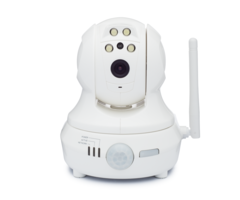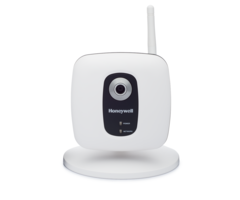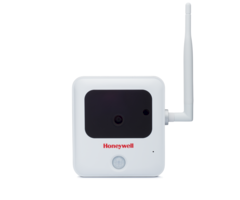Steve Crespo Security 101
Related Products



Related Categories
Description
ALARM GRID
This video was made by Honeywell and proudly distributed by Alarm Grid Security monitoring and accessories http://www.alarmgrid.com. Alarm Grid is a home security company focused on the experience of the customer. We offer no contract alarm monitoring that allows you more choices without sacrificing the quality of your monitoring. We are here to help you protect your life's most important assets without the hassle of being caught in a contract with no way out.
Transcript
Tony: Hi. I'm Tony Martin, and this is Profiles; a show that lets you hear from some of the most interesting, and successful people in the security industry. Now today brings us to beautiful Palm Beach, Florida where we're about to go out on Captain Tom Dylan's Island Clam. We're going to be going out fishing with Steve Crespo from Security 101. Steve is an avid offshore fisherman. We're going to have some fun, and we'll also talk about a little business, so let's get started.
Steve: Turn the handle, Randall. There he is, son. Yeah. Come on, baby.
Tony: All in a good days work, how do you think I did today on my first fishing trip?
Steve: I think you did fantastic. You got your first dolphin, your first sailfish, right?
Tony: How about tomorrow we go back to your office and we talk a little bit about business?
Steve: Let's do that, brother, but before we do it you've got to give the fish a kiss, first dolphin, you've got to do it. Come on; closer, closer.
Tony: Steve, first thing I want to do is thank you for spending time with me this week. We've had a great time I think.
Steve: Absolutely, I appreciate you guys coming down and spending time with us.
Tony: Let me ask you about Security 101. Where did that concept come from?
Steve: It actually dates back several years where we considered doing something like it at an old company, and fast forwarding my partners, Chris Wise and Chris Paris, just saw a need for something different in our industry. They saw that there was a clear gap in the industry between local companies and the big boys, the national companies, and in that gap they felt a franchise model would be a perfect fit for it.
Tony: Let's talk about that gap. Is it a service component?
Steve: It is. It's a clear service component. If you really break down our industry you can think of a few. Look at it this way. You have local companies in any given market that have great reputations, and they do great work on a local level, but they don't have the reach to go national.
Then you've got the national companies that have the reach, that have the footprint, but they don't necessarily have the quality and the service across the board in all their markets. That's the gap, and so what we're doing is we're creating a national organization with local ownership, i.e. the franchise model.
Tony: Who would be - give me an idea of the typical; maybe typical is wrong; but give me an idea of a person that would be a franchisee.
Steve: We are clearly looking for people who have strong talent. What we call the A players, within the industry, and they're going to come from everywhere. They're going to come from integrators, whether it be privately-owned national companies, potentially manufacturers. That's where they're going to come from. If you look at our industry, our industry is really a cottage industry. At some point every company that's out there, short of the publicly-traded national companies at some point work for somebody else, and at some point they decided to take the chance, take the risk, and start up their own company. What we're trying to do is we're just trying to make that step easier by bringing our model to the table.
Tony: How's it going? Tell me about the success that you've had.
Steve: It's going great. We actually feel fortunate. We feel very luck and we're also very proud of the company that we're creating. We're really doing it in a bad economy, aren't we? I mean the last three or four years has been pretty tough. Yet, here we are growing, and we're growing both in locations, franchises, as well as overall revenue.
We're watching ourselves grow. I think that has a lot to do with the A players. A lot of times you ask a company, "Well, what makes your company great?" People oftentimes will say, "Our people." It's very true. It's the same thing with us, only they're not employees they're now owners, which really elevates the whole game.
Now you're talking about a person who is an A player at a company they worked for decided to take the risk, and start up their own company. As you know anybody who starts up their own company, you're risking it all. You're taking money from 401K. You're taking money from your home. You're taking money from savings and your retirement and you're investing that in your business. That's all in, that's burning the boat, as we call it. Do you know what I mean when I say burning the boat?
Tony: Sure.
Steve: You know that means we're hitting the land, and that boat's burnt, there's no turning around, and changing the game plan or switching, going to work for another company. These are people who are completely dedicated. I think it's because of the dedication, coupled with our business model and our processes and what we bring to the table, collectively we are really creating a dynamite company.
Tony: How do you help a franchisee or perspective franchisee want to burn the boat? Is there a mechanism that, "Hey, here we can help you with a playbook?"
Steve: Yeah. Even before the playbook there are a few things that have to be in place. One, you have to have the aptitude and attitude to want to do this. You have to have the skillsets in place. You have to have, obviously the financial ability to start up your own company. Then the one that we always joke around about, but it's actually as important, if not more important than the rest, is if you're a married person, you need what we call "Mama's approval."
You need the home base supporting you and backing you, because without good backing from the home front, it could be a tough situation. Now after that once you've made the decision that this is what I want to do, there are certain things we focus on. Processes are huge to us, so we've taken the business model that we have and we've really refined that into a playbook; as you called it and ironically that's what we call it; to help our franchises succeed. The reality is, is if you went to start up your own business, there's a whole lot of things you have to figure out throughout that process. We've taken a lot of that out, so when you come, the concept is you're taking a successful business model and you're going right to business, which is the concept is it's going to give you success faster with less mistakes.
Tony: Besides the playbook, Steve, what else do you bring to the table for your prospective franchisees?
Steve: I'll just hit on a couple of things. One of them is you. When I say you, I mean Honeywell. We really focus on aligning ourselves with the right manufacturers. What we call the top shelf manufacturers and products within the industry. That's certainly something that's very big. In addition to that, we've also developed our own software, our own software which we call 101-Ware. 101-Ware is a product designed, specifically to run a systems integration house.
Everything; starting from your contact management, to leads, developing proposals, project management, service all the way through to a customer portal; a customer portal where the customers can actually go on, login their own service calls, check on projects, check on proposals. It's a great tool, our clients really love that. That's just a tool that's just not out there in our industry right now that our franchises recognize from day one. They have this tool that helps them run their entire organization. Those are a couple of examples of what we bring, additional things we bring to the table.
Tony: That's a lot of key tools, key stuff. Where's Security 101 going? I mean how many franchise operations or locations are you looking to bring online?
Steve: Sure. Well, our focus is the United States. You know we sometimes get a little silly over a beer and talk about an international type of organization, but certainly for the next several years, we're focused on the United States. Our goal is 101 locations, as you can see we kind of tie everything into that 101 thing, but our goal is 101 locations.
Right now we have 21 locations, several that we are planning on announcing and opening within the next few months. It's exciting stuff. I think our recipe is working, and I say that because it's something that really hasn't been done in our industry. When you look at our industry franchises have been done on the residential level, but not at the level we're playing at, which is that commercial, enterprise-level security company.
Tony: Is there a lot of teaming going on with different franchise locations, so for instance do you have someone in New Jersey helping a job that might migrate to Florida?
Steve: I'll answer that on two fronts. One, yes, we have on a few fronts; one we have national business that we're doing that all of our franchises enjoy in. The other thing we do is we have cross market business going on, which I think is what you were asking, which has been significant.
To be able to bring one client to the table and help other franchises grow their businesses is big. In addition to that when we think of our franchises the network within our organization, might be one of the biggest things that's actually going on. Here we think the franchise company we do so much for them, and we do, but they do so much for each other.
I mean really at the end of the day, it's kind of creating like a fraternity where they're all looking out for each other, helping each other, sending emails out, asking questions, and within 10 minutes, you have five other people giving you good advice. It's really quite remarkable what's taking place here.
Tony: Great and here's my favorite question.
Steve: Oh, boy.
Tony: All right, how was it that you got into this security industry?
Steve: You know isn't it just the funniest thing? I mean how many people do we know in the security industry that at some point said, "When I grow up I want to be a security person,"' right? It just doesn't happen that way. I think most people get into it quite frankly by accident, and that's exactly how I got into it.
Back in the mid '90's, I was 26-years-old. I was managing a health club, looked a little bit different than I do today, and I had a friend who was working for a security company, who I had met the owners just casually. One thing led to another, and before you knew it I took a job, at 26 as a customer service rep, in south Florida for this company. I stayed with that company right all the way through, until it the time it was sold and now here we are at Security 101.
That's kind of my story. I grew up at one company, and quite frankly the two gentlemen that own that company, Bob Newman and Jim Pasquarello, really I learned the whole industry from them. I constantly give full credit to what they've taught me in the industry, and today Jim is one of my business partners, so it's kind of exciting to keep that family thing going, so to speak.
- Uploaded
- Duration:
